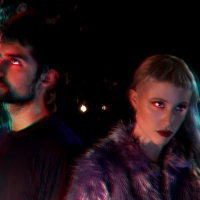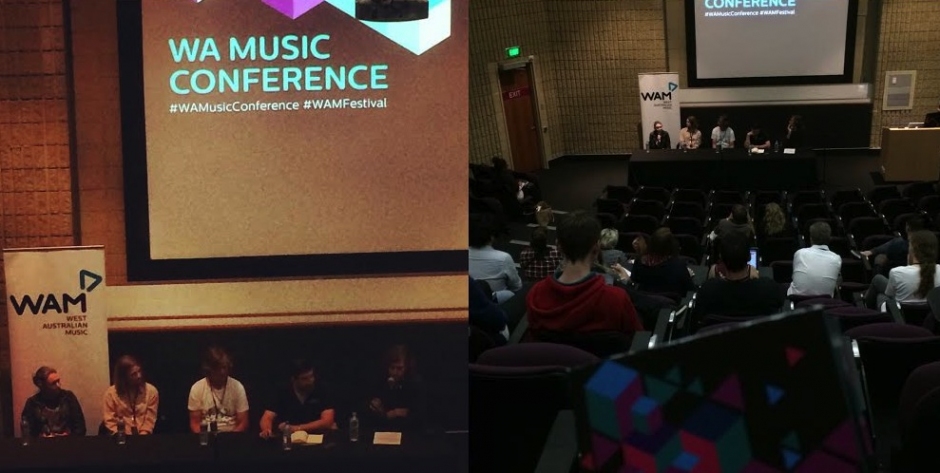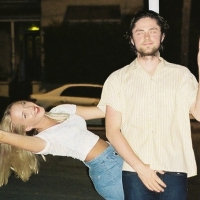 New: De̊ǰa - Try Again (De̊ǰa x Aaliyah)If you're gonna update an R&B classic, this is how you do it.
New: De̊ǰa - Try Again (De̊ǰa x Aaliyah)If you're gonna update an R&B classic, this is how you do it.

WAM Conference Wrap
WAM Conference: Things We Learned This Weekend.
WAM Festival wasn't just about the awards and block parties - the WAM Conference chalked up a successful two day stint of incredible knowledge-sharing this weekend. Over Friday and Saturday, curious music fans, band members, producers, music journalists, managers, bookers, label owners and more gave up their free time to jump into some lecture theatres and hear experts from all over Australia have a chinwag about hot topics in the music industry, as well as share their practical insider tips. It was kind of like a voluntary music university! Big props out to WAM for putting together such a relevant and stimulating program of panels and giving us a leg up on our never-ending journey of discovery. We relayed the best truth bombs to those playing at home via our live Twitter stream (follow us HERE) - here’s some of the stuff that really stuck with us:
Despite popular opinion, getting your music played on triple j is not going to ‘make or break’ your career as an artist:
“While triple j has a strong history of breaking artists, there’s so many other avenues that come into play – including community radio play, live shows, touring, publicity, digital marketing, and so on.” – Nick Findlay, Assistant Music Director triple j
“Agreed - one of the artists we represent, DJ/producer Alison Wonderland, sold out a series of gigantic warehouse shows across the nation, before she even had her first track played on triple j.” – Monique, Publicist Positive Feedback
Artists don’t need to stress about getting added to triple j rotation:
“There’s no need to obsess about getting added into rotation – there’s other options to explore that will get your music heard - for instance sending your music directly to one of the presenters, who might like it so much they’ll play it on their show, which could potentially result in more plays than it being added into rotation would anyhow. Or getting your music played on Unearthed - Artists should celebrate being added to Unearthed more - it has a big listener base of enthusiastic fans. Likewise, there’s Double J as an option – whose listenership grew 700% this year.” – Nick Findlay, Assistant Music Director triple j
You don’t have to be the last man standing at the end of the night to be a valuable player in the music industry:
“It’s a myth that you need to get drunk to network in music, or to build an affable reputation. You don’t have to be the last man standing. Do you really want people’s lasting impression of you as a music professional to be an image of you vomitting in the corner? Especially when you’re at a conference, you really need to be on your A-Game for the important meetings you’ve got lined up – you’re not going to do the best sell for any artists or brands you’re representing if you’re hungover.” – Esti Zilber, Export Music Associate Producer, Sounds Australia
Share your contacts and knowledge where you see opportunities to do so:
“Be genuine and open. Don’t keep useful things to yourself. Share your contacts, put people in touch with each other if you can see a useful connection. Be the instigator. It reflects well on you as an individual. Not to mention, it’s the vibe of the Australian scene as a whole – the industry at the moment, in the eyes of those overseas, has a great reputation for being community-minded: everyone knows we help each other out in Australia.” – Esti Zilber, Export Music Associate Producer, Sounds Australia
If you’re an artist hoping for gigs, ensure your social media is always super up to date, or you’re just losing yourself opportunities:
“If you’re an artist it's vital your Facebook, Youtube and Soundcloud is up to date, and has a proper biography (not a joke one) with all the details about your band members, achievements, and a contact email and phone number. We might absolutely love your music and we may have an incredible opportunity for you - perhaps to support a major international band on their tour - but if we can’t get in contact with you we’ll just go to the next act on our list – we won’t chase you up.” - Tom Johannesen, Booker at New World Artists
Community radio is equally as important as national radio:
"People have this misconception that community radio gives an artist their first play, then once they get a play on triple j community radio’s work is done, or that they’ll never play that artist again. That’s not true – community radio will definitely give a lot of artists the first chance to be heard, however we also support and nurture entire artists’ careers. When Pond and Tame Impala first started out, RTRFM was a huge supporter of those bands and their various side projects, and we still always play their recent releases today, despite their bigger profiles now" - Adam Christou, RTRFM’s Music Director
If you’re an artist that wants your music heard on the radio, you should get onto AMRAP:
“It’s an incredible resource. You can upload your music for free, and target it to community stations nationwide – almost like a replacement for a publicist. AMRAP tells you which stations played your music, so it’s a great way to get feedback, too, and work out your targets for next time.” - Adam Christou, RTRFM’s Music Director
Don’t post the same information in the same way on all your social media platforms; tailor your content to suit the platform’s purpose
“Make sure you’re active and engaging with people across all of your social media platforms – our experience suggests that different users will feel more comfortable on a particular platform. Each platform has a different personality and purpose so you have to tailor your content to suit how each platform works (i.e. content posted on Facebook is usually about compelling storytelling, Instagram users respond well to highly visual content, content posted on Twitter is more headline focused). We connect with our audience across multiple platforms – you have to work out what your audience like, what they respond favourably to, and what content they appreciate, ie find out what’s working for you on each platform, and then, using that information, push different strategies for each platform, whilst maintaining that content is simultaneously published across all social media platforms around the same time so your content sharing is unified, and ensure that your brand’s voice is maintained across the different posts.” – Alex Paioff, founder Pilerats.com
Artists can look into capitalising on less traditional income streams, like film/TV syncing of their tracks:
“Sound Exchange is an independent online platform that collects digital revenues – it’s very simple and useful for being able to see whose using your tracks and getting returns for that usage.” - Clive Hodson, Music Publisher, Perfect Pitch Publishing
“If you’re a musician hoping to get your music on an advertisement, do instrumental versions of your tracks at the mastering stage – this makes it easier for your publisher to build you a back catalogue and get you jobs as many ad directors want vocal-less tracks” - Michael Szumowski, Head of Creative Development, Albert’s music rights management
Make it big as an artist / industry player in your own community before you try to capture another:
“Own your location: demonstrate your success to a booker in your home city before attempting to perform interstate shows. Give a booker facts and figures – how many people were coming to see you play in your hometown? What type of gigs were you playing there? If you do head insterstate, let relevant booking agents know if you’re planning on playing a show in their city – they’ll definitely come down to check you out if they can – but give them plenty of notice, as bookers’ schedules fill up weeks in advance.” – Katie Rynn, Booker at Select Music
When it comes to music networking, you have to be direct:
“The US market don’t play into our humble Australian nature. They want to know what you’re good at, and what you can do for them – you really need to sell yourself and say why you / your act is amazing. Don’t hold back – it may be ages before you get another chance with that person. Know what you want to get out of any given opportunity or event in the music industry – research beforehand who will be there and most relevant to you, work out who you should try and meet, make some goals for yourself. Don’t just drink beers and think that will be enough – you need to create actual meetings with people.” – Esti Zilber, Export Music Associate Producer, Sounds Australia
If you’re an artist, have you thought about trying some gigs in Asia?
“The Chinese music festival scene is huge. There isn’t a huge amount of money to be made touring Asia, but it’s worthwhile doing shows over there, to open yourself up to a new market, and make useful contacts.” - Reggie Ba-Pe III, Burmese born Oz music producer
When music networking, let conversation flow about non-music things, too:
“Don’t make it too business-y too early when networking: make small talk, ask them about personal stuff too – if they tell you about their dog, you can use that little bit of personal information later in an email to refresh their memory on your chat and move your relationship forward (“Hey there, we met at the conference, I’ve been meaning to ask… p.s. give your dog a pat for me!”) Use those personal touches. Also, don’t wait too long to follow up with people after meeting them. Make that reconnection ASAP. Start the conversation.” – Esti Zilber, Export Music Associate Producer, Sounds Australia
 New: De̊ǰa - Try Again (De̊ǰa x Aaliyah)If you're gonna update an R&B classic, this is how you do it.
New: De̊ǰa - Try Again (De̊ǰa x Aaliyah)If you're gonna update an R&B classic, this is how you do it.
 New: GRRL PAL - ParadiseThe WA electronic-pop duo return from the US with some great new music.
New: GRRL PAL - ParadiseThe WA electronic-pop duo return from the US with some great new music.